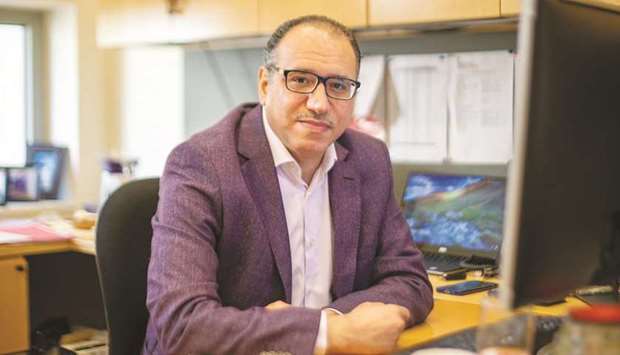An infectious disease expert at Qatar Foundation (QF) says that Covid-19 vaccine immunity could last for a year or more, provided there are no new variants that may escape this immunity.
‘In Qatar, we have been following natural immunity developed by a cohort over 40,000 people that previously contracted Covid-19 for more than seven months now. We have not seen any waning of immunity in the cohort so far. This is encouraging and potentially means that the vaccines will be able to give us strong immunity against the virus. I would say, a year if not more, provided we do not have new variants that may escape this immunity,” said Dr Laith Abu-Raddad, professor, Infectious Disease Epidemiology at QF partner university, Weill Cornell Medicine-Qatar.
“While we don’t have sufficient data on how long immunity from the vaccines will last, we can draw an analogy with natural immunity because we think it is similar to vaccine immunity. It is also possible that vaccine-derived immunity may be better and last longer than immunity derived from virus infection. As variants increase, we will need to have booster doses. Vaccine developers are already working on potential boosters for emerging variants of concern,” explained Dr Abu-Raddad.
The expert recommended that even if the virus keeps evolving, people should go for vaccination.
“ It is the best and only tool to stop the virus from evolving and leading to more mutant variants. The more the virus replicates, the more the chances of a mutant. The only way out of this vicious cycle is if more and more people get vaccinated, which in turn, would mean fewer opportunities for the virus to replicate and mutate,” he noted.
This, according to Dr Abu-Raddad, would require high vaccination rates across the world.
“The trouble is the vast majority of the global population has limited to no access to these vaccines. In countries that don’t yet have access to the vaccine, new variants will keep popping up, and sooner or later will spread to other countries. To stop the generation and spread of new variants, the vaccine uptake must be global,” he remarked.
The expert also clarified some of the concerns such as getting contracted with the virus even after taking the second dose of the vaccine.
“You are not 100% protected, but you are a lot more protected – up to 95% more than unvaccinated individuals. And even if you do catch Covid-19 after, the vaccination will prevent you from getting very sick or ending up in the hospital,” he pointed.
Dr Abu-Raddad also highlighted that getting vaccinated will offer protection possibly in the future. He said: “It is possible that the efficacy of these vaccines against new variants could be lower but this is not necessarily the case for the severity of the infection. This basically means, even if in the future you get infected with a new variant, the severity of the infection will be low.
“Moreover, vaccinated individuals can still be asymptomatic carriers of Covid-19 and potentially spread it to others, which is why it's so important that those vaccinated should continue wearing masks and practice all social distancing measures.”
Regarding the second vaccine dose causing more side effects, Dr Abu-Raddad said that the first dose basically nudges the immune system to inform it that there is a virus and that an immune response is needed.
“With the first dose, the body starts to build the facilities that will generate the antibodies to target this virus; this takes a couple of weeks. When the second dose is administered, the body already has the facilities up and running but is awaiting a signal to start mass production of antibodies," he said.
“The second dose is this signal. Once it’s administered, right away the body produces massive amounts of antibodies, mounting a very strong immune response which is why more symptoms appear after the second dose,” added the expert.


